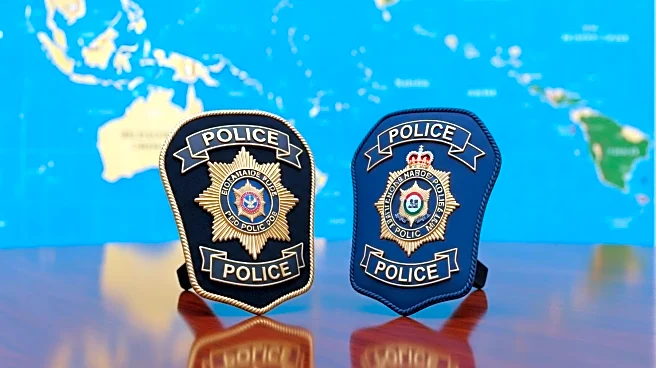What's Happening?
China is preparing to formalize a policing agreement with Vanuatu, marking a significant step in its efforts to expand its security influence in the South Pacific region. This agreement will allow Chinese police officers to operate in Vanuatu, a move that has drawn attention from Western governments concerned about China's growing presence in the area. The agreement follows China's existing police cooperation with countries like the Solomon Islands and Kiribati. Vanuatu's Police Minister, Andrew Napuat, confirmed that China has agreed to donate equipment, including drones and motorcycles, to Vanuatu's police force. This development comes shortly after Australian Prime Minister Anthony Albanese's visit to Vanuatu, where he failed to secure a proposed 10-year aid and security package.
Why It's Important?
The formalization of this policing agreement between China and Vanuatu is significant as it highlights China's strategic expansion in the Asia-Pacific region, which could potentially alter the balance of power. Western nations, particularly the United States and Australia, are wary of China's increasing influence, fearing it may lead to a shift in regional dynamics. Rights groups have expressed concerns that China's policing model, which includes surveillance and control, could be exported to other countries, impacting local governance and civil liberties. This development underscores the geopolitical contest in the Pacific, where countries are vying for influence through aid, infrastructure projects, and security cooperation.
What's Next?
The timeline for finalizing the policing agreement between China and Vanuatu remains uncertain. The extent of the Chinese police presence in Vanuatu is also yet to be determined. As the agreement progresses, it is likely to prompt reactions from regional stakeholders, including Australia and the United States, who may seek to counterbalance China's influence through their own diplomatic and security initiatives. The situation will be closely monitored by international observers, as it could set a precedent for future security arrangements in the Pacific.
Beyond the Headlines
The potential implications of China's policing agreement with Vanuatu extend beyond immediate security concerns. It raises questions about the long-term impact on regional governance models and the potential normalization of surveillance-driven policing. The agreement could influence how other Pacific nations approach security partnerships, potentially leading to a shift towards models that prioritize state control over community-based policing. This development also highlights the broader strategic competition in the Pacific, where countries are increasingly aligning with major powers to secure economic and security benefits.










